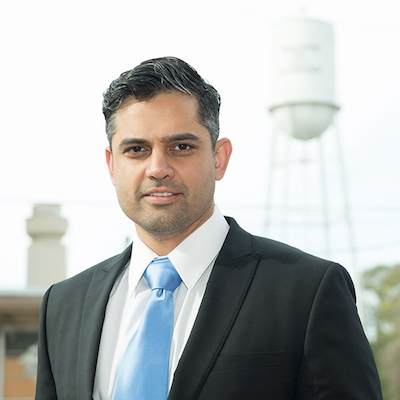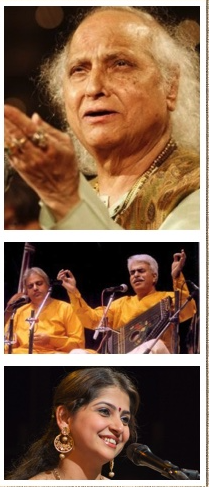
DALLAS (TIP): When Sri Preston Kulkarni returned to the Department of State after a two-year hiatus — during which he worked as a Pearson Fellow on the Capitol Hill and earned a mid-career master’s degree in public administration from Harvard’s Kennedy School — the veteran diplomat was planning to go to New Delhi. He was preparing to serve as a Hindi language spokesperson at the US embassy in India, the county where his father was born, in the new year.
However, Kulkarni, whose first posting after the sabbatical was at the US embassy in Jamaica, would soon realize that, with a new administration at the White House, his workplace has changed — even though the job hasn’t. With President Trump bent on tearing down relationships, getting out of treaties and insulting minorities, ethnic and religious groups, it dawned on him that what he was doing was not what he signed up for 14 years ago.
“When the President of the United States said at a press conference [August 11] that we might attack Venezuela, I had to explain that to my Charge D’affaires,” he told The American Bazar in a recent interview. “Even more distressing was when President Trump said, after the Charlottesville violence, that ‘there were some very fine people on both sides.’”
That was a turning point for Kulkarni, the son of an Indian father and a West Virginian mother. “It went against everything that I believed in as an American,” he said. “My dad taught me that America was the land of opportunity for everybody, no matter what your color or religion is.”
So, in December 2017, Kulkarni left the job because representing a government that is “going against ideals” that he has “always believed in” is not something he could continue doing. “We can’t actually do our job and we can’t represent America, when the government is not representing America,” he said. “If this is what America represents, then I need to change that,” he said.”
So, the 39-year-old is now trying to “change that” by running for Congress from the Houston area, where he grew up.
He is one of the five candidates seeking the Democratic Party nomination from Texas 22nd congressional district.
If he wins the March 6 primary, Kulkarni will take on the GOP incumbent Pete Olson, who is currently serving his fourth term in Congress.
Gerrymandered district
The Cook Partisan Voting Index gives a 10-point advantage to Republicans in the district. In the 2016 presidential elections, Trump beat the Democratic nominee Hillary Clinton by 8 points in the district.
One of the dozens of highly gerrymandered districts across the nation, it contains areas of three suburban Houston counties: most of Fort Bend County and portions of Brazoria and Harris counties to dilute the Democratic votes.
Kulkarni said the district was “carved to be Republican” by cutting several minority areas out of it. Nonetheless, he is confident of winning the primary and trouncing Olson for two reasons.
One is the demographic diversity of the district. Over the years, it has become a majority minority district.
Whites constitute only a little over a third of the population. Hispanics form a quarter, Asian Americans 18 percent and African Americans nearly 14% percent.
“We never had a minority represent the district,” Kulkarni said. “It has the largest Asian American population and the largest Indian American population in the state of Texas. We never had an Asian American or Indian American elected to congress from Texas in our history. The demographics are changing a lot, and a lot of us are interested in a representative that looks more like America, more like the district.”
The second factor that, according to the candidate, is working in his, or the eventual Democratic nominee’s favor, is the current political climate in the district and county. Because of the unpopularity of Trump — whom he described as “more unpopular than any president in my lifetime” — Kulkarni predicated: “We are basically on the border of a tidal wave election for Democrats.”
“We have more Democratic candidates running in Texas as far as I know since Lyndon B. Johnson was president,” he said. “There’s a lot of energy in the Democratic Party. We have candidate for every congressional district.”
Kulkarni cited polls that show that Democrats are holding an 18-point advantage in generic ballots. “They have never recorded that number for an opposition party with 11 months to go before the election,” he said. “I don’t know it is possible to swing any farther from the president. These are unprecedented numbers. People who say that these districts are safe Republican seats, they are not looking at the sentiment of the country.
Kulkarni said Olson hasn’t “really had a serious challenger in the last four elections here.”
In 2016, the congressman defeated Democrat Mark Gibson, who is again vying for the party nomination, by nearly 20 points.
Kulkarni pointed out that in the last election, Gibson raised only $24,000 for the entire campaign. With such a minuscule war chest, it is impossible to take down a well-financed incumbent. Olson, on the other hand, raised more than $1.5 million in the last election cycle, according to the nonpartisan Center for Responsive Politics.
“My campaign raised $34,000 in the first 13 days,” he said. “We are running a different type of campaign. We are running a serious and hard campaign, and we plan to win the district.”
In the last quarter, Gibson raised $13,000 and another primary opponent, Letitia Plummer, raised nearly $19,000.
Targeting minority votes
In the primary, Kulkarni is focusing on winning the backing of Asian American and other ethnic minority groups. Gibson won only 23,084 votes in the Democratic primary in 2016.
The Indian American candidate can potentially win that many votes from just the Indian and South Asian American communities. There are 25,000 people in the district who were born in India.
But Kulkarni understands that Indians, traditionally, have not been the most enthusiastic of voters. “A lot of them stay out of politics,” he said. “What I am trying to impress upon people as we go out to temples and to mosques I that even if you don’t find politics interesting, politics is interested in you.”
He constantly drives home the fact that a passive attitude toward politics is not going to make Indian Americans or other ethnic minorities safe. “Some people think, well, if I keep my head down, people won’t attack me, and I won’t be noticed,” he said. “Well, in reality, if you start accepting some of these things, start accepting a president who wants to ban all Muslims, a president who thinks that a Mexican American, someone born in Indiana, can’t be a judge. When does it stop?”
Kulkarni pointed out that he shares the same first names with Srinivas Kuchibhotla, the man who was shot and killed by a white nationalist in Olathe, Kansas, a month after Trump’s inauguration. “A lot of Indian American families need to wake up to the fact that we are under threat,” he said. “It’s not something that affect only one minority group, it affects all of us.”
The candidate said he has been making inroads into the community. “There are several Indian Americans who are Republicans that live in my district,” he said. “They are supporting my campaign. They are hosting events. At the end of the day, the party affiliation is not as important as the values that underline.”
Kulkarni said he is running a positive campaign, with a very optimistic message. “It’s not anti-Republican, it’s not anti-Trump event,” he said. “It’s pro-American.”
That is why he is running a campaign focusing on issues such as education, universal healthcare, economic inequality, immigration reform and funding for veterans and national defense.
“We believe in public school system,” he said. “A lot of families move into neighborhood specifically because they care about their children’s education. When you take money out of the public school system, then you negate all of that.”
He also emphasized the need for having leaders who understand basic things about science. “The congressman that we have, he actually said on the floor of the House that he shouldn’t have to pay for prenatal care for women, because he has an X chromosome, which means he can’t have babies,” he said, pointing out that everyone has an X chromosome.
Kulkarni said he envisions an inclusive America, unlike the one that Trump advocates. He said: “The problem is when you have a president who is so blatantly stereotypes people by ethnicity and religion and gender and degrading women in public, undermining the free press, attacking our democratic institutions, attacking our courts, attacking the FBI, attacking the CIA, and just recently you hear his comments about other ethnic groups — repeatedly, again and again.”
In fact, on his campaign website, the candidate terms the Trump-inspired polarization within the country as the raison d’etre for his candidacy: “I have spent my career trying to reduce conflict in other countries, but right now hostility and conflict are being inflamed in our own country, through the politics of anger and demagoguery, demonization of specific ethnic and religious groups, threats to rule of law, degradation of women, and an undermining of democratic institutions like a free press,” he says. “The greatest danger to our country right now is not a foreign power, but the internal divisions in our society. That is why I am coming home to Texas to serve.”
Stellar bio
Kulkarni is biracial: his father Venkatesh Kulkarni was an Indian immigrant; and mother Margaret Preston Kulkarni is West Virginian.
Margaret’s family has been in the country for 400 years. “They go back to a time where there was no United States,” Sri said.
In 1980, the couple moved to Houston, where Venkatesh would teach creative writing at Rice University. Margaret worked as a systems analyst at AIG. (According to Sri’s filings with the Federal Election Commission, his mother is the “Custodian of Records,” as well as the treasurer of the Kulkarni campaign.”)
Venkatesh Kulkarni, who grew up in Hyderabad and graduated from Osmania University, published a critically acclaimed novel, Naked in Deccan, which he called “Indo-American fiction.”
He died in 1998 after battling leukemia for a year.
Kulkarni went to Lamar High School in Houston.
He moved to Austin for his undergrad at University of Texas in linguistics and Russian. (A polyglot, besides English and Russian, he speaks three other languages, Chinese, Hebrew and Spanish.)
During his father’s illness, he took some time off to help his mother and siblings Silas, Margo, and Kris.
After his graduation in 2003, Kulkarni joined the Department of State and he was commissioned into the service by then-Secretary of State Colin Powell. His first overseas posting was in Taipei, where he served for two years.
Then he moved to Russia. “We had a better relationship back then,” he joked. The diplomat would then serve in Iraq, where he was on a provisional reconstruction team, as part of a combined civilian military team.
“For a year and a half, I lived on a military base in Kirkuk, Iraq, which was a disputed territory between Kurds and Arabs,” he recalled. “We were constantly being bombarded by rocket attacks IEDs being exploded. I was doing public affairs and training journalists there.”
A year and a half later, he was transferred to Jerusalem. Among his main tasks serving at the US consulate in the ancient Middle Eastern city was mitigating conflict and between Israelis and Palestinians.
Postings in Kirkuk and Jerusalem made him “an expert on disputed territories,” he joked.
Three years later, he would return to Washington, DC, to serve in the State Department’s Bureau of Public Affairs. As digital media office, he ran the Facebook operation for the entire department.
In 2014, when Russia took over Crimea and sent troops into Eastern Ukraine, Kulkarni served as the campaign director of a task force set up within the department to counter the Russian propaganda in Ukraine. “I didn’t know that time that the Russian government would do the same thing in the United States,” he said referring to the Russian interference in the 2016 presidential election.
In 2015, Kulkarni was selected for the Pearson Fellowship, which allows Foreign Service Officers an opportunity to work on Capitol Hill for a year to learn about the legislative process. He worked for Sen. Kirsten Gillibrand, the junior senator from New York as a foreign policy and defense advisor.
His stellar bio includes a midcareer master’s program from Harvard’s Kennedy School, which he did after completing the Pearson Fellowship.
Kulkarni said his education, training and his extensive background in foreign policy and national security, and experience in working on the Hill has prepared him to be a United States House of Representative.
(Source: AB Wire)





Be the first to comment